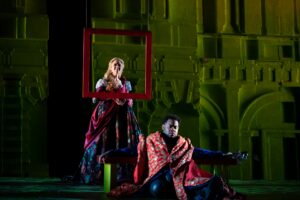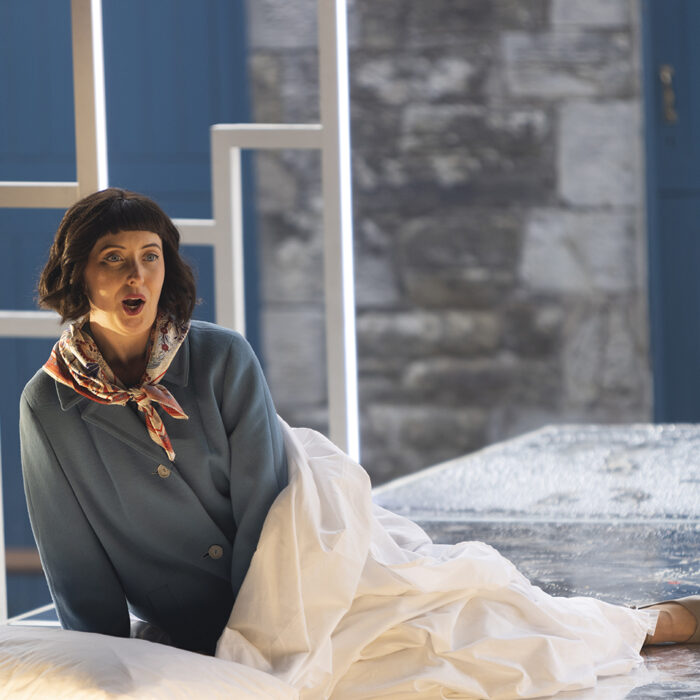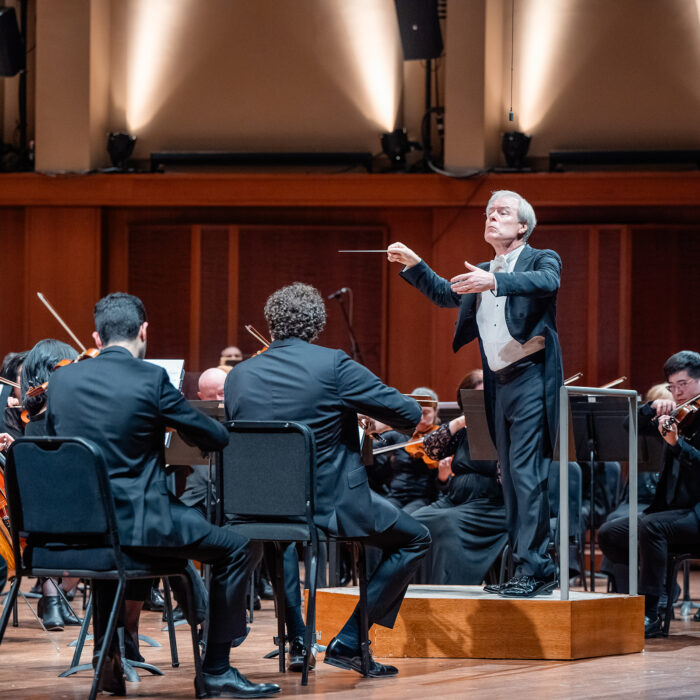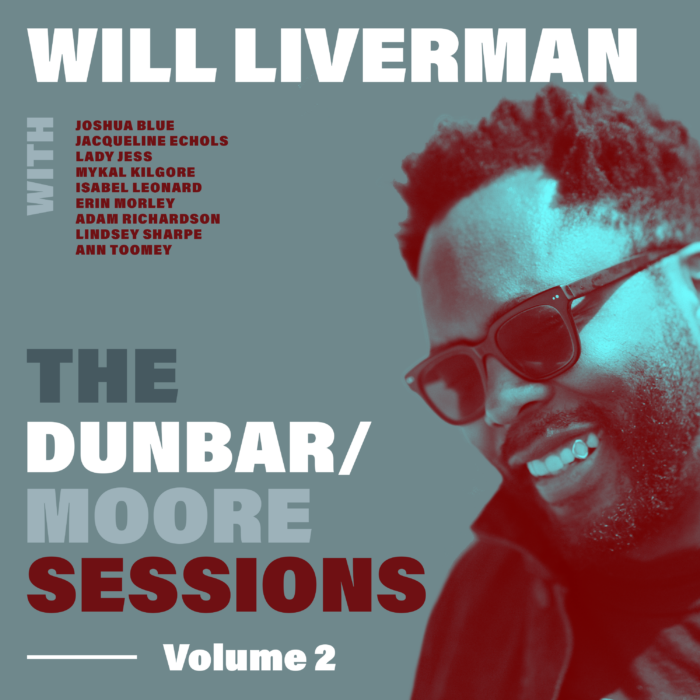
Detroit Opera 2022-2023 Review: Xerxes
By John VandevertDetroit Opera performed George Friederich Handel’s opera “Xerxes,” written from 1737 to 1738, on commission by the King’s Theatre in London. With a change of hands only months behind, Yuval Sharon has a huge legacy to continue, which was frustrated by the opera’s subpar performance. With a stellar orchestra but a shaky cast, Detroit Opera’s renovated Handel was a very strange evening.
The Night’s Creators
In a production straight from the Glimmerglass Festival, famed directors Tazewell Thompson and James Blaszko were tasked with bringing Handel’s opera to Detroit. Musically, Dame Jane Glover triumphantly led the orchestra along with a three-instrument continuo, giving the night some sense of historical accuracy. However, this is where it stopped.
In the role of Xerxes was Key’mon W. Murrah missed the mark channelling Jaroussky and Fagioli. The performance lacked nuanced expressiveness and musicality.
Sisters Lauren Snouffer and Elizabeth Sutphen, embodying Romilda and Atalanta, exemplified authentic vs. artificial acting styles, although musically divine. Sun-Ly Pierce’s performance was a strong departure from her rich sound heard in 2021 as part of the HGO Studio Digital Recital. However, the repertoire may be at fault, as her bel canto sophistication was evident to all.
In the roles of Ariodate and Elviro were Nicholas Newton and Michael Sumuel, two singers whose bravado got the best of their stellar voices, whereas Amastre, sung by Vanessa Cariddi, didn’t rise to the level to justify the bravado.
The post-modernist set and lighting designs by John Conklin and Robert Wierzel were yet another strange element of the production. In their desire to be contemporary, they descended into regietheater territory.
Big rectangular panels, a raked stage, neon-green lighting, a silver-wired tree, and a crooked screen depicting weeds were the night’s visuals. The minimalist strategy didn’t bring out anything from the story except the opposite. It obfuscated what the true story was and satirized the tree, the symbol of Xerxes’ desire for true love. It was an unfortunate blunder.
The costumes were a hindrance, too, as they used gaudy materials, bold hues, and lacked both form and elegance in their attempt to replicate the period style.
The ‘Lucky’ Singers
In the title role, Murrah was rather bland. All throughout, Murrah sang with a safeness that never turned off, and it was clear he was relying on overtones to produce a sparkly pianissimo rather than breath and acoustic space. Routinely, he fell off his voice when attempting subito piano and had a habit of dropping the ends of phrases for seemingly no artistic reason.
The voice also never varied in color, and his higher notes were often piercing and not easy on the ears.
Lacking was also a change in intentionality in the voice. There were no sublime characteristics—nothing but transparent vibrato.
As Romilda and Atalanta, Snouffer and Sutphen complimented each other. Snouffer’s expressive voice was supported by a constant legato which gained fullness as the evening continued. A sense of awareness saturated Snouffer’s singing, however. She seemed nervous to touch her upper notes. No need, of course, as her intonation and musicality proved that her Mahler, Bach, Mozart, and Adam-cut voice could handle it.
By Act three, she began to embrace the full possibilities of her much larger voice and was a magnificent performer.
As for Sutphen—a first-class spitfire and a stunning virtuoso of the coloratura art form, it was hard to take your eyes or ears off of her, even for a moment. With such a vivacious and vigorous sound at every single moment. Her technique was unmatched, as her clean melismas and flexibility had little to no weight.
Sutphen helped the audience understand the story with her engaging acting, which never felt too much. Her usage of the stage was also fantastic, taking any and every opportunity to pull focus in clearly deliberate manners so as to provide a nice counterbalance to the dull nature of the production.
Cariddi’s performance as Amastre was problematic. She’s talented, but because of the way Handel wrote her part, she didn’t have any ability to really showcase what she could vocally achieve.
She acted the trouser role convincing, but vocally, her voice came across as untidy. When Handel did allow her to shine, however, her instrument gained a resonant quality which was nice to hear.
Her repertoire includes many contemporary operas, and perhaps in a different musical context, she would have excelled. But this repertoire may not be her home yet. Nevertheless, nothing was technically wrong, although her low range did not seem settled. By the end of the opera, more confidence was present both vocally and dramaturgically.
As Arsamene, Pierce was a strong performer and a powerful singer who captured the essence of brotherly feuding and virtuous love. With a sturdy but comfortable air, Pierce clearly understood the balance between softness and strength needed to perform in a travesti role.
A smoothness seemed an innate quality in her voice, although she was very quiet in many places until finally opening up by the final act. As a mezzo-soprano, Pierce has taken up many idiosyncratic and contemporary works, yet here, in this early opera, her voice was less rich than at other times.
To show anguish, her voice seemed aggressive, but in her capture of love and longing, it took on a more bel canto radiance. Ultimately, she’s a multi-dimensional singer forced to sing in two dimensions. Handel should take the blame, but so should Detroit Opera’s choice of venues; it wasn’t the right place for early opera.
Filling out the cast were Sumuel and Newton, and they, too, put on a lackluster performance. For Sumuel, not even a robust tone with good spin and diction helped. Excessiveness was the idee fixe of the evening, and there was a clear lack of nuance in his performance that came across as gimmicky. Although his voice resonated well, his propensity to sour his vocalisms with ill-fitting actions proved to be his downfall.
Newton’s very heavy voice was not at the expected level, either, but his regal actions were far easier to watch than Sumuel’s. His well-built bass voice was fine, though there was nothing remarkable nor original in his sound. His voice moved but never too much, and when it did, it was never in subtle ways but rather big sweeps and gestures.
Cuts? From where?
The staging often had singers at a disadvantage except for Sutphen’s side entrance during Act one. The constant shifting and moving didn’t aid the voices, and there was a hungry for stillness by Act two.
The opera is close to three hours, and Detroit Opera made cuts. And they were undisclosed; the synopsis gave no indication of what was removed or from where. Usually, you can look towards the overture and sinfonia in early music as a helpful way to position oneself in the plot. Yet, at the beginning of Act two, the orchestra played a sinfonia of sorts, the performance of which was beautiful. However, it doesn’t exist in the score. Where was the music from? The answer is at the beginning of Act three.
Nearly a full half-hour of music was cut from the opera without a footnote in the program, an egregious error on the part of Detroit Opera. Cuts are never the issue. The problem lies in not telling the audience. This seems to be an issue with Detroit Opera, as their “modern” “Die Walkure” also featured undisclosed cuts.
Highs and Lows
The opera had many exceptional moments and many disappointing ones as well.
For starters, “Ombra mai fu” was extremely fast and had a homogenous sound, which was worrisome.
Snouffer’s “Và godendo vezzoso e bello” was marvelous, with tasteful ornamentation showing careful consideration was taken. “Sì, sì, mio ben, sì, sì” was divine, and with Sutphen’s drama and playful elegance, the opera was getting on track.
“Aspide sono a’ detti tuoi d’amore,” also sung by Snouffer, proved that her voice was opening up and that she was shaking off her nerves, though she was timid on the cadential ending but confident in her lower range.
However, Act one ended with Sutphen’s masterfully sung aria, “Un cenno leggiadretto.” What can be said about perfection? Coloratura was handled adeptly, with all the jumps, trills, and challenges treated with grace and diligence.
In Act two, Sutpher’s “A piangere ogn’ora amor mi destina” was a technicolor display, while the Xerxes/Atalanta recitative “Di quel foglio” was well handled. Recitative throughout was either very good or very bland. A story was being told that needed to be conveyed through their voice, and it was missing.
The duet between Romilda and Xerxes, “L’amerete?” was another moment that proved that Snouffer really could use her voice while Murrah’s quietness left the audience flat.
The duet between Amastre and Xerxes, “Gran pena è gelosia!” was again monotoned but technically fine. Amastre’s “Cagion son io” was cloudy but confident, while Xerxes’ “Crude furie degl’orridi abissi” coloratura was refined; it lacked resonance. The final piece, “Caro voi siete all alma,” was unexpectedly beautiful. Sadly, it took close to three hours to get there.
It was a night of potential but squashed realizations. As one audience member said, the performance was “kinda boring.”


